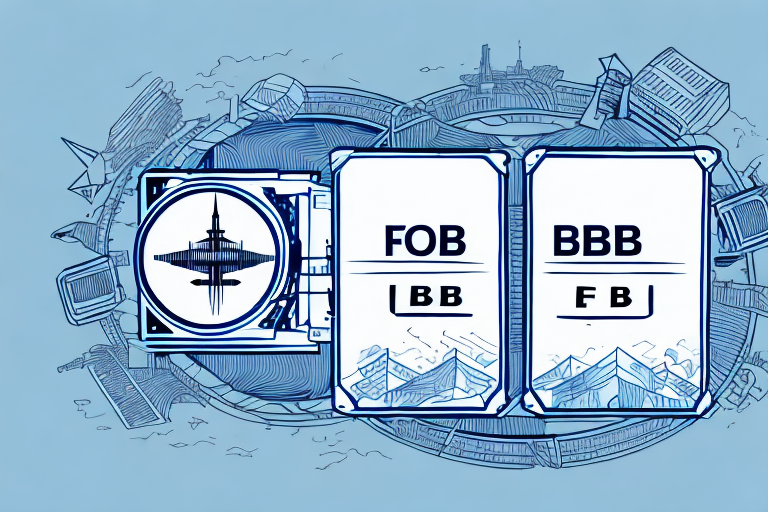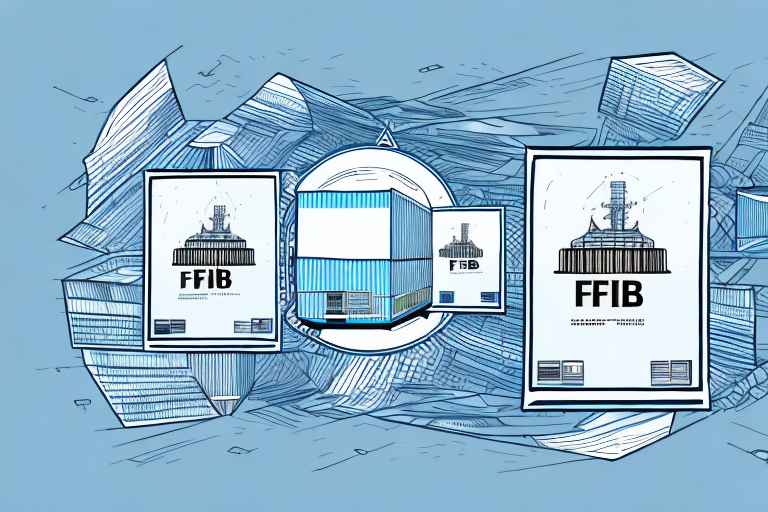Understanding the Benefits of FOB Destination Incoterms
International trade involves navigating a complex web of regulations and requirements that vary by country. One of the fundamental elements in facilitating smooth transactions is the use of Incoterms. These internationally recognized trade terms define the responsibilities of buyers and sellers regarding the shipment of goods. Among these, the FOB Destination Incoterm stands out for its numerous advantages to both parties. This article delves into the benefits of using FOB Destination Incoterms in your business transactions.
What are Incoterms and How Do They Work?
Incoterms, short for International Commercial Terms, are a set of standardized terms published by the International Chamber of Commerce (ICC). Introduced in 1936, they provide a common framework for buyers and sellers to delineate their respective responsibilities in the delivery of goods.
Key Functions of Incoterms
- Define Responsibilities: Clarify which party handles tasks like shipping, insurance, and customs clearance.
- Allocate Risks: Determine at which point the risk of loss or damage transitions from seller to buyer.
- Streamline Transactions: Reduce misunderstandings and disputes by providing clear guidelines.
As of the latest 2020 revision, there are 11 Incoterms, including EXW (Ex Works), FOB (Free on Board), CIF (Cost, Insurance, and Freight), and DDP (Delivered Duty Paid). These terms cover a wide range of shipping scenarios, ensuring that businesses can choose the most appropriate terms for their specific needs.
A Brief History and Evolution of Incoterms
Since their inception, Incoterms have evolved to reflect the changing dynamics of international trade. The latest revision in 2020 introduced significant updates to address modern logistics challenges, such as the rise of e-commerce and sustainable shipping practices.
Major Revisions in 2020
- Inclusion of New Responsibilities: Enhanced clarity on digital documentation and electronic communication.
- Sustainability Considerations: Emphasis on environmentally responsible shipping practices.
Staying updated with the latest Incoterms is crucial for businesses to ensure compliance and optimize their supply chain operations. For more detailed information, refer to the official ICC Incoterms 2020 documentation.
FOB Destination: Definition and Scope
FOB Destination is a widely used Incoterm in international trade, particularly for sea and inland waterway transportation. Under this term, the seller retains ownership and responsibility for the goods until they arrive at the buyer's specified destination.
Core Responsibilities Under FOB Destination
- Seller: Handles all costs related to transportation, customs clearance, and insurance until the goods reach the destination.
- Buyer: Assumes responsibility once the goods are unloaded at the final destination.
It's important to note that FOB Destination is not applicable for air, road, or rail transport. In such cases, other Incoterms like FCA (Free Carrier) or DAP (Delivered at Place) should be considered.
Benefits of FOB Destination Incoterms
Adopting FOB Destination Incoterms offers several advantages that enhance the trading relationship between buyers and sellers.
Clarity and Transparency
FOB Destination provides a clear division of responsibilities, reducing the risk of misunderstandings and disputes. Both parties have a mutual understanding of who is accountable for various aspects of the shipment.
Enhanced Control for Buyers
Buyers benefit from having the seller manage the entire shipping process up to the destination, ensuring that goods are delivered to the correct location in good condition.
Cost Efficiency
By streamlining the shipping process and minimizing the risk of delays or damages, FOB Destination can lead to cost savings for both parties. According to a study by Export.gov, businesses using Incoterms effectively can reduce shipping-related costs by up to 15%.
The Role of FOB Destination in International Trade
FOB Destination plays a pivotal role in facilitating international trade by providing a reliable framework for managing shipping logistics.
Handling Perishable and Time-Sensitive Goods
For businesses dealing with perishable items or products with tight delivery schedules, FOB Destination ensures that the seller takes full responsibility for timely and safe delivery, thus safeguarding product quality.
Global Supply Chain Integration
In a globalized market, having standardized terms like FOB Destination enables seamless integration of supply chains across different regions, enhancing efficiency and collaboration.
Legal Considerations When Using FOB Destination Incoterms
Compliance with legal regulations is paramount when utilizing FOB Destination Incoterms.
Regulatory Compliance
Both parties must adhere to the trade laws of the countries involved in the transaction. This includes customs regulations, import/export restrictions, and documentation requirements. Non-compliance can lead to fines, shipment delays, or legal disputes.
Contractual Clarity
It's essential to incorporate FOB Destination terms clearly in the sales contract. This ensures that all parties understand their obligations and can refer back to the agreement in case of disputes.
For comprehensive legal guidelines, refer to resources such as the Lexology guide on Incoterms.
Best Practices for Implementing FOB Destination in Your Supply Chain
To maximize the benefits of FOB Destination Incoterms, businesses should adopt the following best practices:
Optimize Transportation Routes
Select efficient shipping routes and reliable carriers to minimize transit times and reduce the risk of delays.
Ensure Proper Documentation
Maintain accurate and complete shipping documents, including bills of lading, invoices, and insurance certificates, to facilitate smooth customs clearance and delivery.
Partner with Trusted Logistics Providers
Collaborate with reputable freight forwarders and logistics companies to ensure the safe and timely delivery of goods.
Implement Risk Management Strategies
Develop contingency plans to address potential disruptions, such as natural disasters or transportation delays, to safeguard your supply chain.
Tips for Negotiating FOB Destination Terms with Your Trading Partners
Effective negotiation is key to ensuring that FOB Destination terms are mutually beneficial.
Clear Communication
Discuss all aspects of the shipment, including delivery timelines, responsibilities, and cost allocations, to establish a common understanding.
Flexibility and Compromise
Be willing to adjust terms to accommodate the needs and constraints of both parties, fostering a cooperative trading relationship.
Leverage Expertise
Consult with trade experts or legal advisors to navigate complex negotiations and ensure that all terms are clearly defined and enforceable.
Common Pitfalls to Avoid When Using FOB Destination Incoterms
While FOB Destination offers numerous benefits, there are potential challenges that businesses should be aware of:
Incomplete Documentation
Failure to provide necessary shipping documents can lead to delays and disputes. Ensure all paperwork is thorough and accurate.
Misunderstanding Responsibilities
Ambiguity in roles and obligations can result in conflicts. Clearly outline each party's duties in the contract.
Ignoring Legal Requirements
Non-compliance with import/export regulations can have serious repercussions. Stay informed about the legal landscape in both the origin and destination countries.
Conclusion
FOB Destination Incoterms offer a structured and transparent framework for managing international shipments, benefiting both buyers and sellers by clearly delineating responsibilities and mitigating risks. By understanding and effectively implementing FOB Destination terms, businesses can enhance their operational efficiency, reduce costs, and foster trustworthy trading relationships. However, it's crucial to adhere to best practices, ensure legal compliance, and maintain clear communication to fully leverage the advantages of FOB Destination in the global marketplace.




















